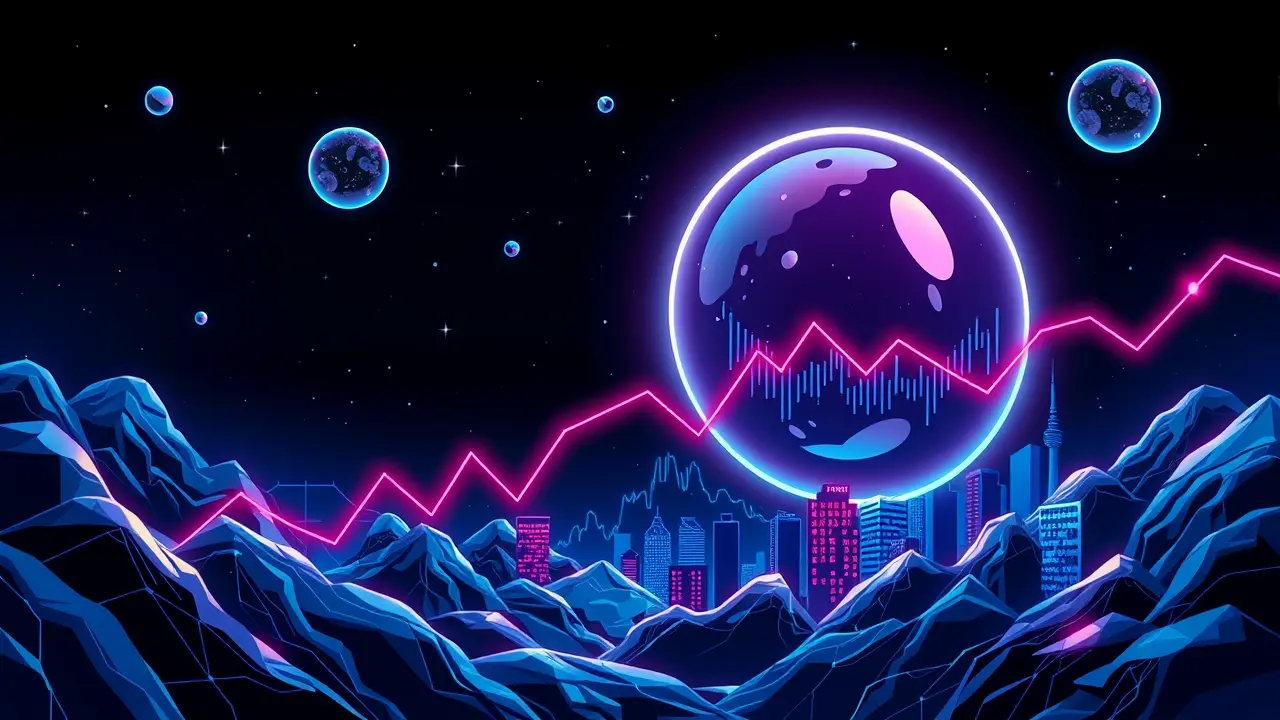
FinancemarketsMarket Volatility
Predicting When the Stock Market Bubble Will Burst
OL
Olivia Scott
3 hours ago7 min read1 comments
The ghost of economist Paul Samuelson’s famous quip—that the stock market has predicted nine of the last five recessions—hangs heavy over Wall Street today, a wry reminder of the financial world’s propensity for false alarms. Yet, beneath the daily churn of market sentiment and the stubborn default of optimism that keeps bull markets clinging to life, a more profound fragility is taking root, one that seasoned financial economists are increasingly unable to ignore.The very indicators we once relied upon as beacons—consumer confidence, volatility indexes, and corporate earnings projections—now swing with the manic energy of a pendulum caught in a storm, reacting to every geopolitical tremor and Federal Reserve utterance. This isn't the healthy volatility of a dynamic economy; it's the tell-tale thinning of the ice.And the crowd senses it too. The recent surge in online searches for 'stock market bubble' is a stark, quantitative measure of the collective anxiety seeping into the mainstream psyche, a digital canary in the coal mine.To understand why this time might be different, one must look to the unprecedented monetary policy of the last decade, a era of near-zero interest rates and quantitative easing that flooded the system with cheap capital, inflating asset prices to levels detached from traditional valuation metrics like the cyclically adjusted price-to-earnings (CAPE) ratio, which currently hovers in territories historically synonymous with major corrections. The 'TINA' (There Is No Alternative) effect that drove investors into equities for yield has begun to reverse as the Fed embarks on its most aggressive tightening cycle in a generation, making risk-free Treasury bills suddenly look attractive again.This fundamental shift creates a powerful headwind. Furthermore, the concentration of market gains in a handful of tech behemoths, driven by the AI frenzy, echoes the dangerous narrow leadership of the dot-com era.While giants like Nvidia soar on the promise of artificial intelligence, the broader market health looks increasingly anemic. Warren Buffett’s favorite market gauge—the total market capitalization to GDP—flashes red, suggesting stocks are significantly overvalued relative to the size of the underlying economy.The question is no longer if a correction is coming, but what will be the catalyst and what will be the fallout. Will it be a cascading failure in the shadow banking system, a sudden loss of confidence in US debt, or an exogenous black swan event? The consequences will ripple far beyond portfolio statements; a significant burst could freeze corporate investment, trigger widespread layoffs, and test the resilience of the global financial architecture, particularly in export-dependent economies like Germany and China that rely on robust consumer demand.The lesson from history, from the South Sea Bubble to 2008, is that markets can remain irrational longer than investors can remain solvent, but they always, eventually, revert to the mean. The current fragility suggests that reversion may be closer than the prevailing optimism admits.
#featured
#stock market
#bubble prediction
#market sentiment
#financial fragility
#economist analysis
#recession indicators
Stay Informed. Act Smarter.
Get weekly highlights, major headlines, and expert insights — then put your knowledge to work in our live prediction markets.
Related News
© 2025 Outpoll Service LTD. All rights reserved.











